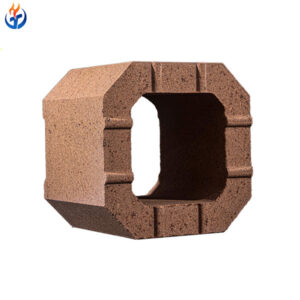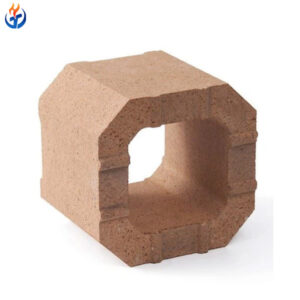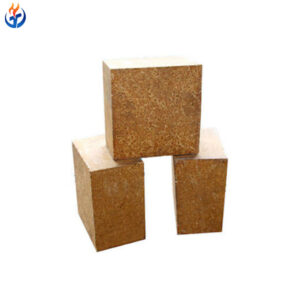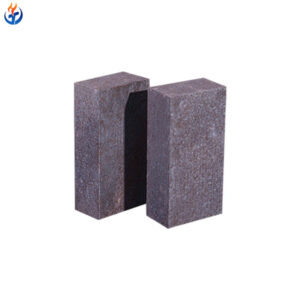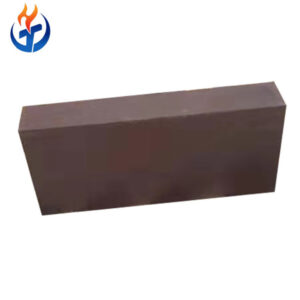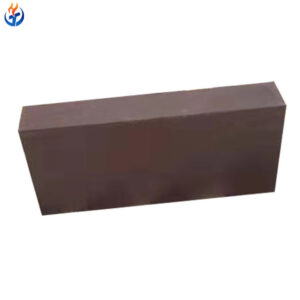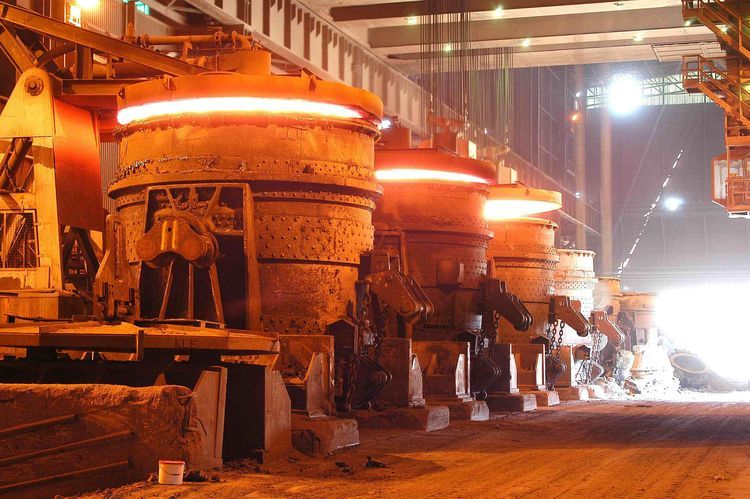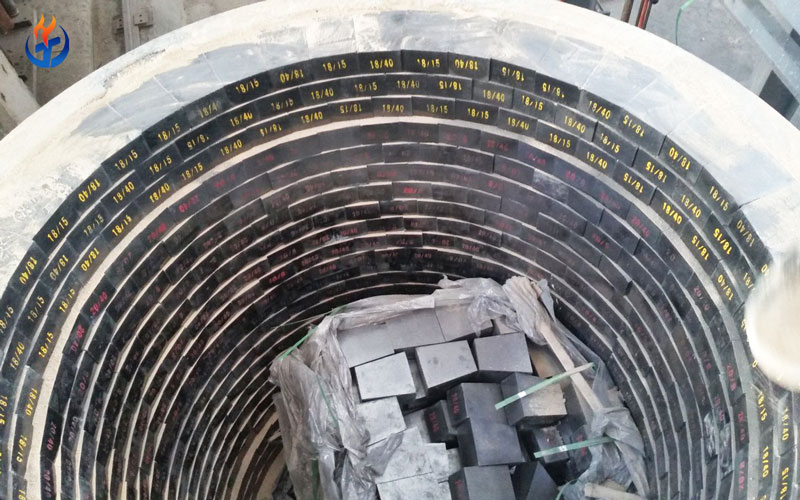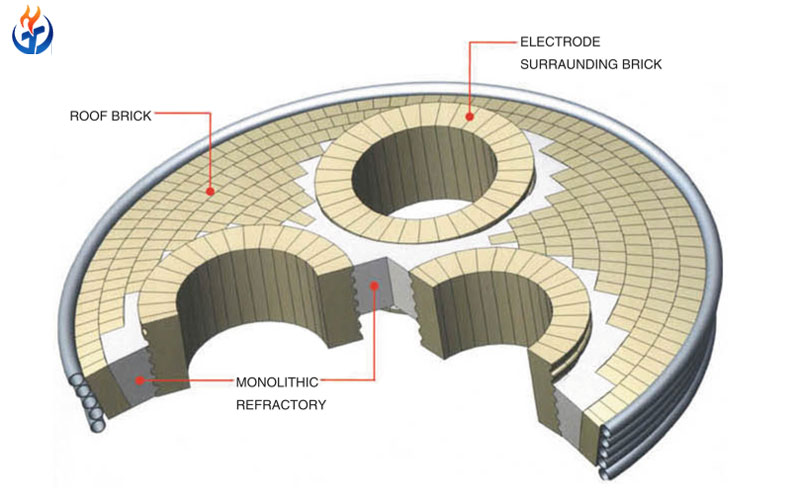Cement manufacturing is one of the most energy-intensive industries, requiring equipment that can withstand extreme conditions. Among the most critical components in a cement plant is the rotary kiln, which operates at temperatures exceeding 1400 °C. To maintain efficiency and prolong service life, the kiln lining must be constructed with durable, heat-resistant materials. One of the most reliable choices is magnesia bricks for cement kilns, known for their excellent thermal properties and resistance to chemical attack.
This article explores the benefits, applications, and performance of these refractory materials and why they are preferred for rotary kiln operations.
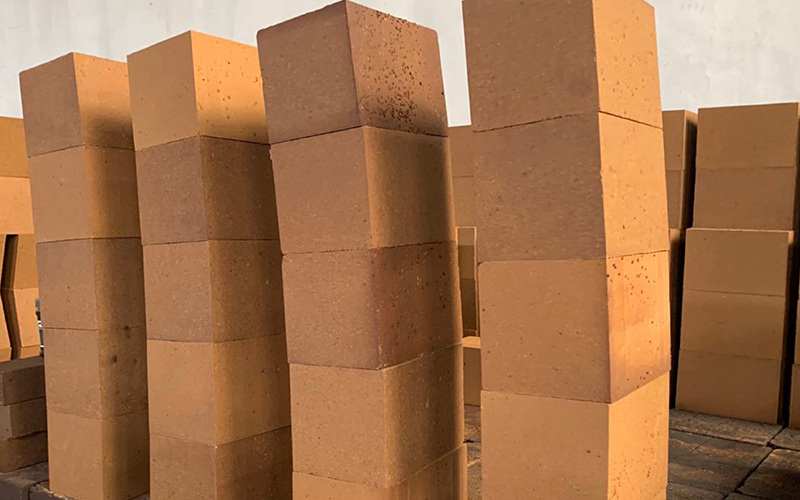
Understanding Magnesia Bricks
Magnesia bricks are basic refractory materials with a high content of magnesium oxide (MgO), typically ranging from 85% to 97%. They are produced by sintering or fusing magnesite at high temperatures to create a dense, durable brick capable of withstanding severe kiln environments.
In cement kilns, particularly rotary kilns, lining materials must endure high heat, thermal shocks, and the corrosive effects of clinker and lime. Magnesia refractory bricks for cement kiln basic refractory lining meet these demands by offering exceptional heat resistance and chemical stability.
Key Benefits of Magnesia Bricks for Cement Kilns
1. High Resistance to Extreme Temperatures
Cement kilns operate continuously at elevated temperatures, often exceeding 1400 °C. Magnesia bricks maintain their structural integrity even at such extreme conditions, ensuring minimal wear and extended service life.
2. Excellent Corrosion Resistance
The kiln environment exposes refractories to alkaline salts, clinker dust, and lime. Magnesia bricks exhibit strong resistance to chemical attack, reducing the risk of degradation and protecting the kiln shell from damage.
3. Superior Thermal Conductivity
High thermal conductivity ensures efficient heat transfer within the kiln, optimizing fuel consumption and improving energy efficiency. This property is vital for maintaining consistent clinker quality.
4. Strong Structural Strength
Magnesia bricks provide excellent mechanical strength, withstanding the abrasion and mechanical stresses of continuous kiln rotation and material movement.
5. Cost Efficiency in Long-Term Operation
Although magnesia bricks may have a higher initial cost compared to some other refractories, their durability and low maintenance needs result in significant long-term savings.
Uses of Magnesia Bricks in Cement Plants
Magnesia bricks are primarily used in the rotary kiln refractories of cement plants. However, their application extends beyond the kiln lining to several other high-temperature zones:
Rotary Kiln Lining – The main application where magnesia bricks withstand direct heat, chemical attack, and abrasion from clinker.
Transition Zone – These bricks handle both thermal shocks and mechanical stress as materials move from the preheating section to the burning zone.
Burning Zone – The highest temperature area of the kiln where magnesia bricks provide thermal stability and chemical resistance.
Coolers and Hot Zones – Magnesia bricks are also used in cooler sections, where they help regulate heat recovery processes.
Why Cement Plants Prefer Magnesia Bricks
The choice of kiln lining material directly affects production efficiency, energy consumption, and maintenance schedules. Here’s why magnesia bricks are a preferred choice:
Durability Under Harsh Conditions
Unlike acidic refractories, magnesia bricks resist chemical reactions with lime and clinker, making them suitable for basic refractory applications in cement kilns.
Improved Kiln Efficiency
High thermal conductivity ensures heat retention and transfer, reducing energy losses and improving the overall performance of the kiln system.
Reduced Downtime
Magnesia bricks have a longer service life, which translates to fewer shutdowns for maintenance or relining, ensuring consistent production schedules.
Types of Magnesia Bricks Used in Cement Kilns
Cement kilns may use different types of magnesia bricks based on specific operational needs:
Sintered Magnesia Bricks
Made by sintering magnesite at high temperatures, these bricks offer excellent thermal resistance and mechanical strength.Fused Magnesia Bricks
Produced by fusing magnesite in an electric arc furnace, fused magnesia bricks provide superior density and corrosion resistance.Magnesia-Spinel Bricks
A combination of magnesia and spinel (MgAl₂O₄) enhances thermal shock resistance, making them ideal for transition and burning zones.
Installation and Maintenance Guidelines
Proper Lining Design
The kiln lining must be carefully designed to accommodate thermal expansion and mechanical movement. Improper design can lead to cracks, spalling, and premature failure.
Skilled Installation
Magnesia bricks require professional installation to ensure tight joints, correct alignment, and effective bonding with refractory mortar.
Routine Inspection
Regular monitoring of kiln lining helps identify early signs of wear or damage, enabling timely repair and preventing costly shutdowns.
Choosing the Right Magnesia Bricks Supplier
When sourcing magnesia bricks for cement kilns, consider the following:
Material Quality – High MgO content, uniform density, and precise dimensions ensure optimal performance.
Technical Support – Suppliers who provide guidance on design, installation, and maintenance help maximize brick lifespan.
Proven Experience – A supplier with expertise in rotary kiln refractories ensures reliable solutions for different kiln zones.
Conclusion
The demanding environment of cement kilns requires refractory materials that can withstand extreme heat, chemical exposure, and mechanical stress. Magnesia bricks for cement kilns deliver exceptional performance, ensuring operational efficiency, extended service life, and cost savings. By choosing high-quality magnesia refractory bricks for cement kiln basic refractory applications, cement producers can improve production reliability and reduce long-term maintenance costs.
If you are looking for dependable refractory solutions, partner with a trusted supplier who understands the unique challenges of rotary kiln operations and offers tailored products to meet your plant’s needs.

